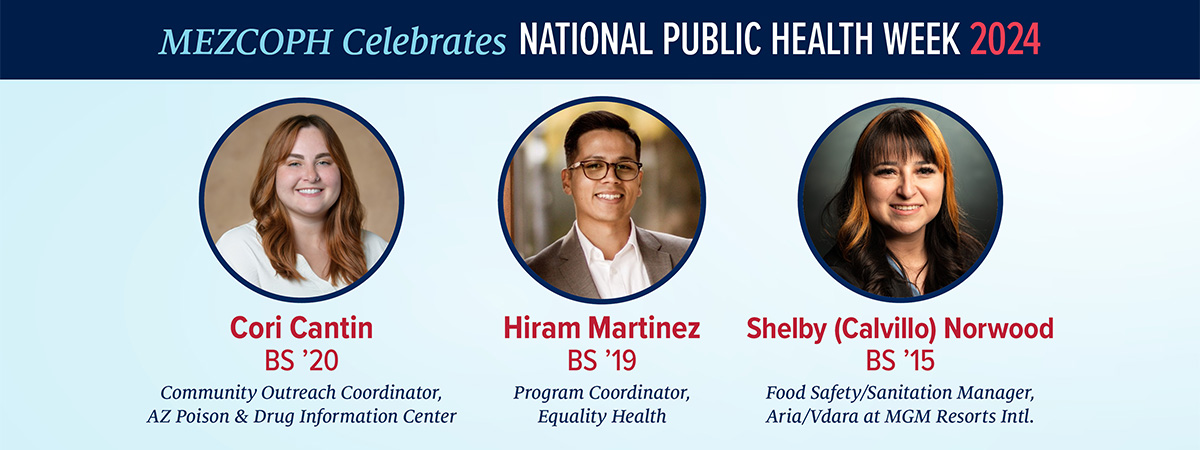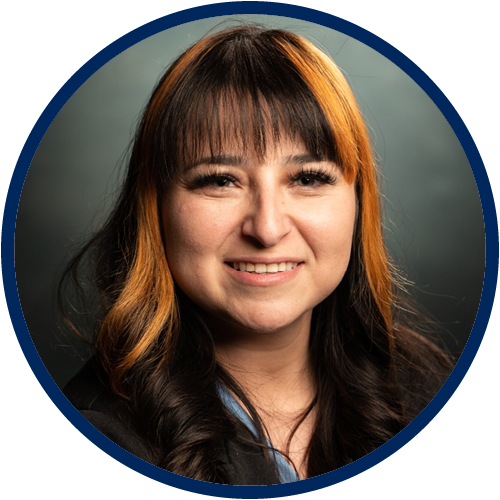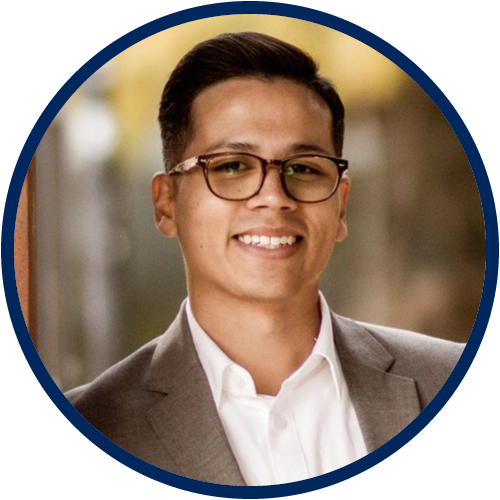Undergraduate Public Health Alumni Career Panel Highlights Career Opportunities

The Zuckerman College of Public Health convened a panel of recent alumni from the BS in Public Health program for a career panel discussion to help current and prospective students understand the range of career opportunities available with an undergraduate degree in public health.
The Zuckerman College of Public Health convened a panel of recent alumni from the BS in Public Health program on April 2, 2024, for a career panel discussion designed to help current and prospective students understand the range of career opportunities available with an undergraduate degree in public health.
Students, staff and alumni joined virtually to hear from three alumni panelists, Shelby Norwood, BS ’15, Hiram Martinez, BS ’19, and Cori Cantin, BS ’20, who shared their career journeys from graduation to their current professional position and future plans. The alumni panelists discussed how the knowledge they gained from the BS program in the college continues to benefit their careers. To help BS students who will soon graduate, the panelists also offered valuable career advice about careers in public health, and emphasized the importance of exploring diverse opportunities and leveraging their education to make a positive impact in the field.
![]() Watch the Panel Recording on YouTube
Watch the Panel Recording on YouTube
Meet the Panelists

Shelby Norwood BS ’15, REHS
Shelby Norwood graduated in 2015 with a BS in Public Health from the College of Public Health, with a focus on Environmental. After graduating she worked in retail, and then found a position as an Environmental Health Specialist at Pima County. There she transitioned from a generalist role where she inspected pools, public schools, mobile home parks, hotels, and food to become a trainer, helping individuals pass their Radiation Health and Safety (RHS) exam. Shelby eventually moved to Las Vegas for more food safety opportunities and now oversees food safety operations at MGM Resorts International for ARIA Resort & Casino and Vdara Hotel & Spa. She has taken on corporate responsibilities, including writing Standard Operating Procedures (SOPs) and implementing Hazard Analysis and Critical Control Point (HACCP) plans. When it comes to the future of food safety she is excited about the role of technology when it comes to blockchains tracing recalls in food.

Hiram Martinez BS ’19
Hiram Martinez, BS ’19, is currently a Program Coordinator at Equality Health, specializing in health literacy and Community Based Organization (CBO). He initially attended community college to fulfill his general education requirements before transferring to the University of Arizona to pursue his public health studies at the UA. While unsure of his specialization at first, he developed an interest in preventing diseases, particularly in underserved rural border communities with limited healthcare access. Throughout his academic journey, he explored environmental and occupational health before finding his passion in health promotion, health education, and health communication. Two years after graduating he found a role within public health by leveraging faculty members that helped him network in the public health field. He secured roles in tobacco education and health literacy at Pima County Health Department (PCHD), eventually transitioning to the private sector healthcare industry. In his current role, Hiram focuses on transitioning independent healthcare practices to value-based care and implementing health equity strategies. He foresees value-based care and healthcare digitization as significant forces shaping the future of healthcare in the United States. Hiram's advice for aspiring public health professionals is to advocate for the profession and effectively communicate the value public health brings to their role.

Cori Cantin BS ’20, CHES
Cori Cantin graduated with a BS in Public Health, specializing in health education and promotion, in Fall 2020 from the University of Arizona. Initially Cori considered a career in nursing, then she discovered her passion for health education and promotion through exposure to different public health tracks. She was particularly drawn to educating underserved populations. After gaining work experience in the restaurant industry, she secured a position with Arizona Youth Partnership, focusing on sexual health education and peer pressure education for youth. Cori successfully pursued a Certified Health Education Specialist (CHES) certification exam in Fall 2022 and transitioned to her current role as a Community Outreach Coordinator at the Arizona Poison and Drug Information Center. She works in health education and poison prevention with snake bite awareness, medicine safety, opioid overdose, and other poison topics. She emphasizes the importance of certifications in the field of health education and looks forward to incorporating new strategies, potentially involving AI, in the future of health education and prevention.
Takeaways From the Undergraduate Alumni Career Panel
Skills and Knowledge from the BS in Public Health Program Enhances Career Success
- Social Determinants of Health. The Social Determinants of Health play a significant role in shaping health outcomes, including the influence of factors such as geographical location, family history, and access to health insurance. Individuals from more privileged backgrounds may not always consider the various challenges faced by the general public in accessing healthcare and the impact it has on their well-being and future generations. In the field of health education, it is crucial to approach the profession with an open mind, acknowledging and understanding the diverse backgrounds individuals may come from.
- Systems Perspective of Health. A systems level viewpoint allows for a comprehensive understanding of the various factors influencing individual health. It highlights the diverse sectors that play a role or should be engaged to enhance the health outcomes of specific communities.
- Data. Learning what organizations or agencies you can obtain from data to assess the health of the community and how they use that information to help prioritize actions and efforts.
- Public Health Core Functions and Essential Services. Understanding the 10 essential services of public health provides a solid foundation for conceptualizing the essence of public health and its core principles.
- Crucial discussions. Most public health classes are discussion based, rather than a hard science approach with clear cut answers (i.e. two plus two equals four.) When we are talking about social determinants of health, the focus shifts to understanding why individuals in different zip codes may experience varying life expectancies or health outcomes. Engaging in such discussions is crucial in the field of public health as it allows professionals to empathize with individuals' circumstances and have meaningful conversations that drive impactful change.
Career Search Advice
- Score-based interviews. Certain government agencies utilize a scoring system for interviews. They may pose questions such as "What are your top 5 symptoms and 6 concerns regarding diseases?" Each question carries a value of 11 points. The individual with the highest score will proceed to a second interview or be extended a job offer.
- Soft Skills. Having the necessary knowledge for a particular role is important, but possessing the ability to effectively communicate crucial information and collaborate with others is essential for securing that role.
- Resumes and Cover Letters. Ensure that your cover letters and resumes are customized to fit the specific role and organization you are applying to. Be diligent in verifying that you have included both your resume and cover letter, as overlooking this detail could potentially disqualify you from consideration for the position due to a minor oversight.
- Use the language of the job posting. Government agencies interviews may adhere more strictly to the job requirements of a particular position. When preparing for a job interview, it is essential to align your professional background with the job requirements by articulating your experience in a manner that mirrors the language used in the job listing.
- Demonstrating Professional Etiquette. Present yourself in a manner that aligns with the expectations of appropriate work attire.
- Stay Positive. It can be challenging to apply for numerous positions without receiving responses or advancing to second interviews. If you are willing, consider requesting feedback from the hiring committee regarding your interview performance. Remember that the ideal job for you exists, and while it may require time, it will eventually come your way.
Finding Your Public Health Career Path
- Put yourself out there. Taking risks and embracing the possibility of failure is essential. Exploring various opportunities is key to discovering your career path. When reviewing job listings that outline specific requirements or preferred qualifications, do not hesitate to apply even if you feel you lack certain experiences. There is always a chance that the hiring team will appreciate your potential during the interview process and decide to offer you the position.
- Networking. Engage with individuals who possess greater experience and are pursuing similar paths to what you aspire to achieve. Seek out a mentor or coach to guide you. Enhancing your LinkedIn profile can significantly benefit your professional network. Attend various events like health and college fairs to broaden your knowledge and connections.
- Look into certifications. If you aim to enhance your undergraduate degree, consider exploring various certifications available to broaden your expertise and increase your competitiveness in the job market.
Learn more about undergraduate degree opportunities in the Zuckerman College of Public Health.

